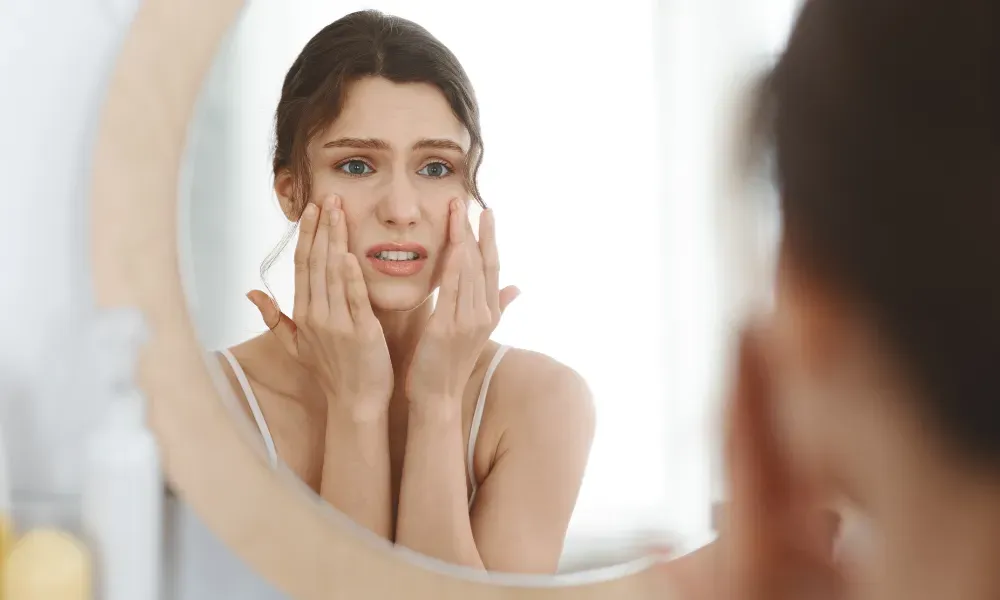Understanding the Mind-Skin Connection
The skin is the body’s largest organ, and it is more closely connected to mental health than many people realize. When the mind is under stress, anxious, or overwhelmed, the skin often reflects this inner turmoil through breakouts, dullness, or flare-ups of conditions like eczema and psoriasis. This intricate relationship, often called the “mind-skin connection,” shows how emotional health and physical appearance are deeply intertwined. Understanding this connection can help individuals not only improve their skin but also support their overall mental well-being.
The Role of Stress Hormones in Skin Health
One of the most direct ways mental health affects the skin is through stress hormones, particularly cortisol. When the body perceives stress, cortisol levels rise, triggering a cascade of effects. Elevated cortisol can increase oil production, which often leads to clogged pores and acne. It can also weaken the skin’s barrier function, making it more susceptible to dryness, irritation, and infections. Over time, chronic stress can accelerate skin aging, leading to wrinkles, fine lines, and loss of elasticity.
Anxiety and Skin Disorders
Anxiety not only affects the mind but also manifests physically, often through the skin. People experiencing anxiety may notice worsening of conditions such as rosacea, eczema, or hives. Stress and anxiety increase inflammation, which exacerbates these issues. Moreover, habits associated with anxiety, such as skin picking or scratching, can create or worsen visible skin damage. These skin changes can, in turn, heighten anxiety, creating a difficult cycle to break.
Depression and Its Impact on Skin
Depression influences skin health in subtle yet significant ways. Individuals experiencing depression may neglect skincare routines, leading to dryness, dullness, or worsening of pre-existing conditions. In addition, depression can affect sleep patterns, which are critical for skin repair and renewal. The lack of restorative sleep often results in dark circles, puffiness, and a tired complexion. This can reduce self-esteem and reinforce the emotional weight of depression, again showing the two-way relationship between mind and skin.
The Psychodermatology Approach
Psychodermatology is an emerging field that explores the intersection of psychology and dermatology. It recognizes that treating skin conditions effectively requires addressing the underlying mental and emotional triggers. For example, therapy for stress or anxiety may help improve acne or eczema. Likewise, improving skin health can positively influence confidence and mental well-being. Psychodermatology emphasizes a holistic approach, where the mind and skin are cared for together.
The Role of Lifestyle and Habits
Daily habits influenced by mental health also play a role in skin condition. When stressed, individuals may turn to unhealthy coping mechanisms such as poor diet, smoking, or excessive alcohol consumption—all of which negatively impact the skin. Nutrient deficiencies can make the skin less resilient, while toxins from smoking or alcohol contribute to premature aging. Conversely, adopting healthier coping strategies such as meditation, journaling, or exercise can reduce stress and visibly improve skin over time.
Sleep and the Mind-Skin Connection
Quality sleep is essential for both mental health and skin health. During deep sleep, the body repairs cells, balances hormones, and regenerates skin tissue. Mental health challenges such as stress, anxiety, or depression often disrupt sleep, depriving the skin of this restorative process. Chronic sleep deprivation leads to dullness, fine lines, and weakened immunity, making the skin more prone to breakouts and infections. Prioritizing sleep hygiene therefore benefits both the mind and the complexion.
The Impact of Self-Image and Confidence
Skin health strongly influences self-esteem and self-image. Visible skin issues such as acne, scars, or psoriasis can lead to feelings of embarrassment or social withdrawal. This can negatively affect mental health, contributing to anxiety, depression, or reduced confidence. On the other hand, improving skin through proper care, stress management, and lifestyle changes can create a positive feedback loop where healthier skin improves self-image, which then supports better mental health.
Strategies for Breaking the Cycle
The cycle of stress affecting the skin, and poor skin affecting mental health, can feel overwhelming. However, there are strategies to break this loop:
- Stress management practices such as mindfulness, yoga, or breathing exercises can lower cortisol levels.
- Consistent skincare routines tailored to one’s skin type help maintain resilience even during stressful periods.
- Professional help, such as therapy or counseling, can address underlying mental health issues, which in turn benefits the skin.
- Healthy diet and hydration provide the skin with the nutrients it needs to repair and glow.
By integrating these strategies, individuals can support both their emotional well-being and their physical appearance.
Conclusion: Healing from Within and Without
The mind-skin connection highlights how mental health and skin health are inseparable. Stress, anxiety, and depression directly affect the skin, while skin issues can impact confidence and mental well-being. Addressing one without the other may only offer temporary relief. A holistic approach that nurtures both the mind and the skin creates long-term benefits. By prioritizing emotional wellness alongside skincare routines, individuals can achieve healthier skin and a more balanced state of mind.


